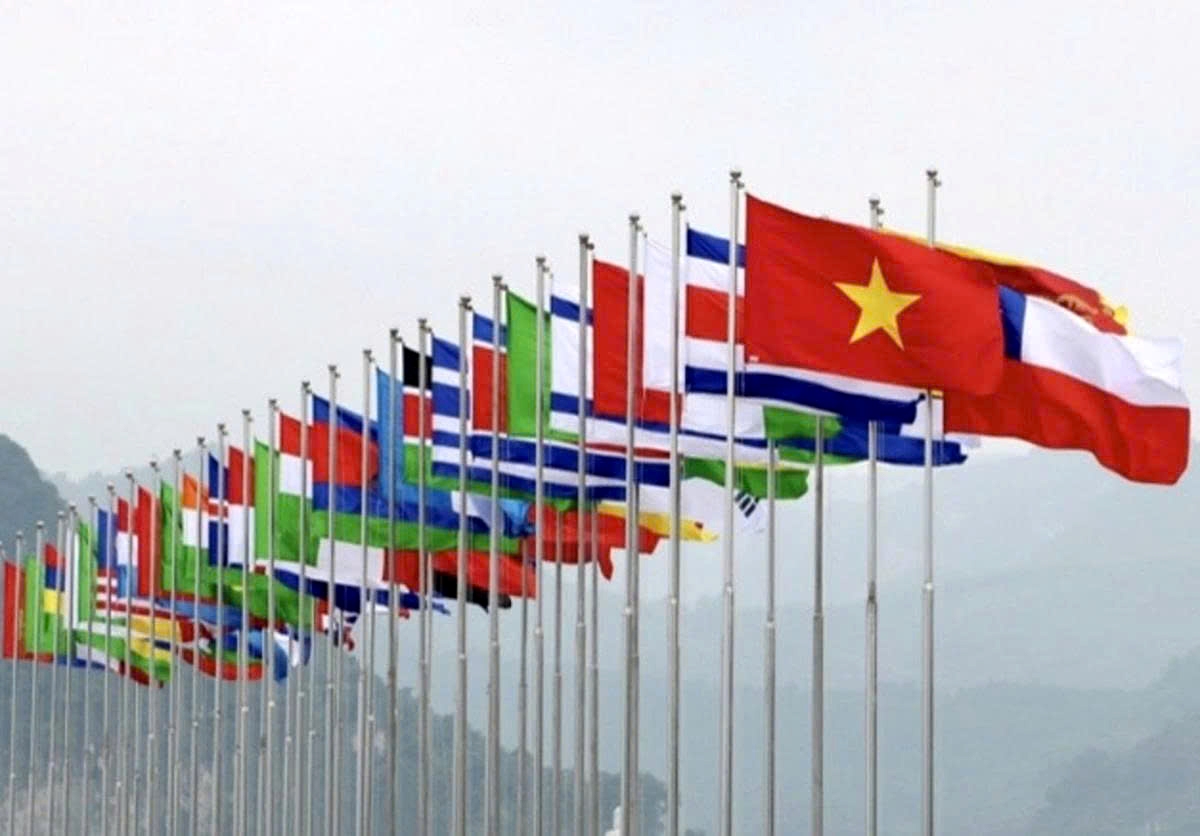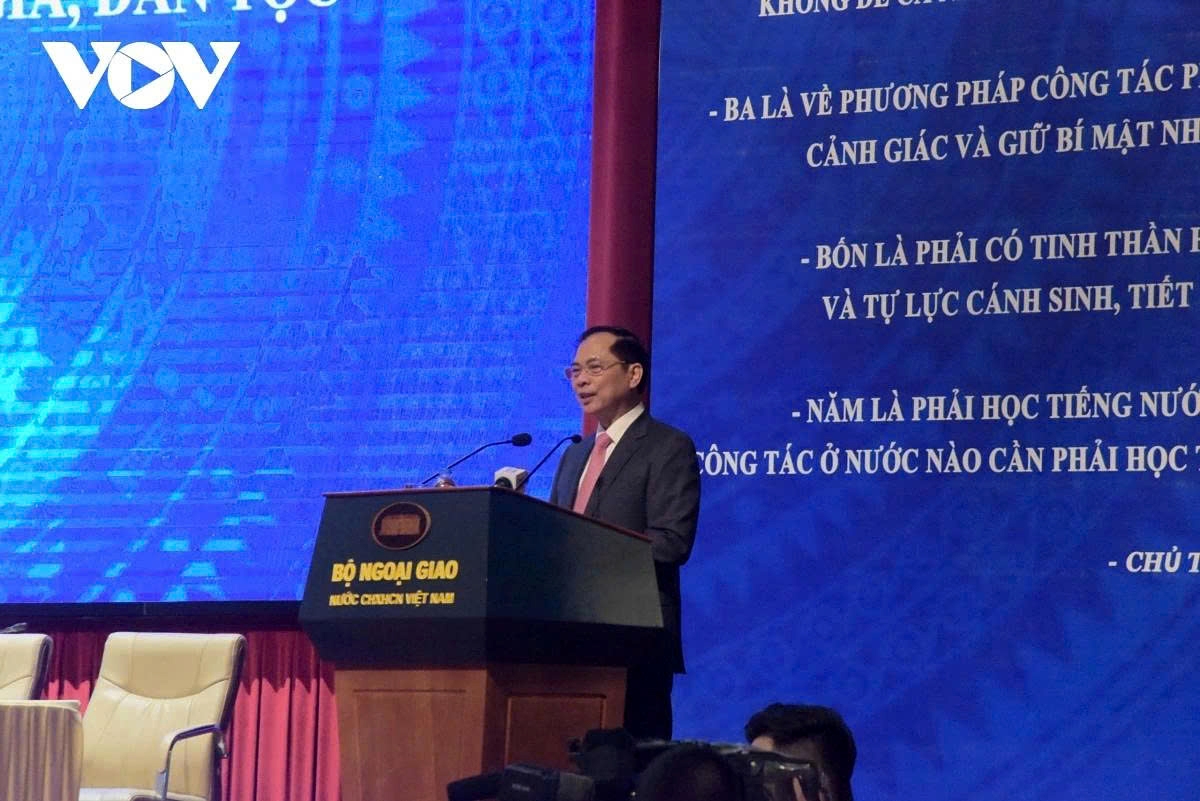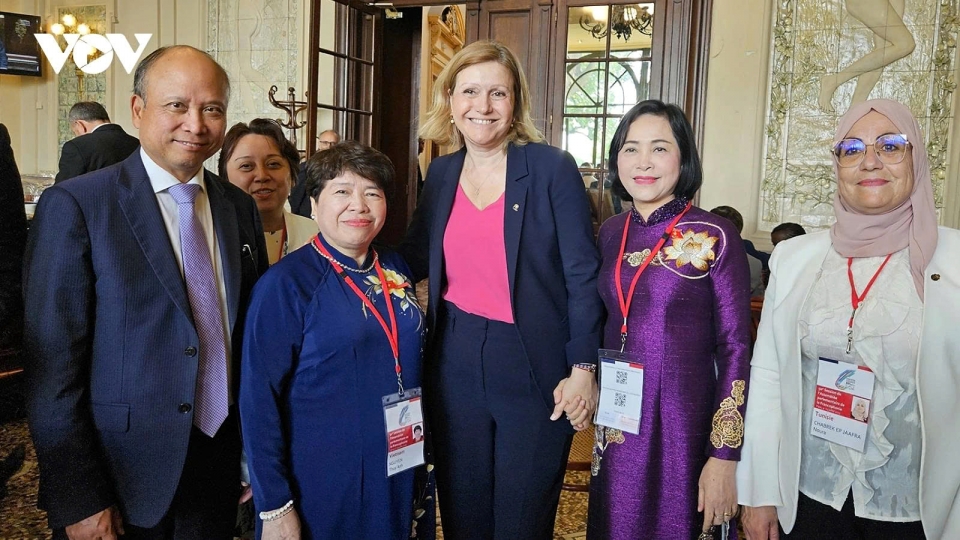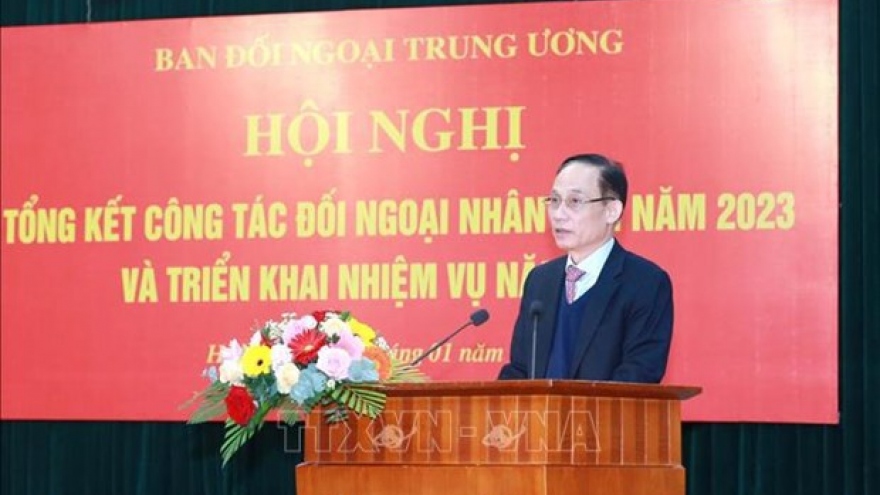Vietnamese diplomacy affirms a pioneering role in a new era
VOV.VN - Throughout 80 years of development, Vietnam’s diplomatic sector has always played a pioneering role in the cause of national defence and development.

From the earliest days of the struggle for independence, diplomacy served as a vital front, helping to transform military victories into success at the negotiating table, laying the groundwork for peace, independence, and national unification.
In the post-reunification era, diplomacy continued to play a central role in lifting the country out of isolation, breaking the economic embargo, and normalising relations with major powers. It helped expand Vietnam’s international presence through a foreign policy of independence, self-reliance, diversification, and multilateralization, serving the goals of peace, cooperation, and development.
These efforts laid the foundation for a modern, proactive, and resilient diplomacy that accompanied the country’s broader Đổi mới (Renovation) process.
Vietnamese diplomacy also led the way in deep international integration, marked by major milestones such as joining the Association of Southeast Asian Nations (ASEAN) in 1995, the Asia-Pacific Economic Cooperation (APEC) in 1998, and the World Trade Organisation (WTO) in 2007.
To date, Vietnam has established diplomatic relations with nearly 200 countries and territories around the world, including strategic partnerships and comprehensive partnerships with more than 30 countries.
The country maintains economic relations with over 230 countries and territories, and has signed 17 Free Trade Agreements (FTAs), many of which are new-generation and multilateral free trade agreements like the Comprehensive and Progressive Agreement for for Trans-Pacific Partnership (CPTPP), the EU – Vietnam Free Trade Agreement (EVFTA), and the Regional Comprehensive Economic Partnership (RCEP).
Vietnam has been recognised by the United Nations for its pioneering role in implementing the Sustainable Development Goals (SDGs) and promoting human rights.
The upgrading and elevation of relations with key and important partners, along with vibrant high-level external activities, especially since the beginning of the 13th National Party Congress tenure, have helped shape a new strategic stature for Vietnam. These efforts have deepened cooperation, laid a solid foundation for long-term and sustainable partnerships, and enhanced the country’s global standing.
Former Vice Chairwoman of the National Assembly’s Committee for External Relations, Ton Nu Thi Ninh, remarked “Vietnam today is a model for how to balance relations with major powers while safeguarding national interests. Its international integration has been strategic and methodical, supported by a professional diplomatic corps that embodies intelligence and initiative. The country’s achievements in economic diplomacy, multilateral diplomacy, and its participation in global trade agreements demonstrate the strength and wisdom of Vietnam in this new era.”
As Vietnam is entering a new stage of development, heading toward strategic goals such as the centenary of the Communist Party of Vietnam in 2030 and the centenary of the nation’s founding in 2045, the diplomatic sector remains acutely aware of its pioneering role. It is tasked with maintaining a peaceful and stable environment, protecting sovereignty, mobilising external resources, and creating favourable conditions to achieve Vietnam’s long-term development vision.

According to Deputy Prime Minister and Minister of Foreign Affairs Bui Thanh Son, Vietnamese diplomacy is deeply honoured to have been directly guided by President Ho Chi Minh, the nation’s first Foreign Minister and the founder of Vietnam’s revolutionary diplomacy.
“Today, following the consolidation with the Party’s External Relations Commission and the assumption of certain responsibilities from the National Assembly’s Committee for External Relations, the Ministry of Foreign Affairs serves as the sole specialised body responsible for strategic foreign policy advisory and the unified coordination of all external activities of both the Party and the State,” he said.
Facing increasingly complex global challenges, the diplomatic sector is committed to refining its theoretical foundations, drawing lessons from practice, and identifying creative, flexible solutions. It aims to implement a comprehensive, modern, professional, distinctive, and humanistic diplomacy, making worthy contributions to Vietnam’s mission of safeguarding the nation and fostering development in the new era.





